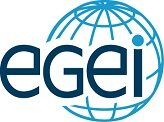Applying for an Italian study visa (first semester in Bari, Italy)
The first semester of the EMJMD EGEI will be held in Bari (Italy) in 2025. Non-EU students selected to study at the University of Bari (coordinating institution of the EGEI Consortium) will need to apply for a student visa at the nearest Italian Embassy/Consulate. The visa application requirements and processing time can be lengthy, taking anywhere from a few weeks up to several months.
It is very important that you contact the nearest Italian Embassy for information as early as possible in the application process.
Please notice that, before joining our programme, you will only need to apply for one visa only at an Embassy/Consulate, as Italy is the location for your first semester. Afterwards, while you’re spending your semester in Italy, you will have the chance to apply for a Belgian residence permit.
Web-based pre-enrolment on Universitaly.it (only for Non-EU students)
The University of Bari is the coordination institution of the EGEI Consortium and all students will be enrolled there for academic year 2025-2026. Non-EU students not living in Italy have to pre-enrol using the online platform called UNIVERSITALY. You will receive detailed information and support for completing the procedure from the Programme Director.
Once your pre-enrolment request on Universitaly.it has been approved by the University of Bari Aldo Moro on behalf of the Master EGEI consortium, you will receive a confirmation email. Please note that the university confirmation email does not automatically imply the issue of a study visa.
Which documents you will need for the pre-enrolment on Universitaly.it?
- copy of your passport (valid until 3 months after the expiry of your visa)
- admission letter from the EGEI programme. An admission/invitation letter (in Italian and English) from the EGEI Consortium, which provides information regarding your admission to our programme and its structure, the scholarships you’ve been awarded (if any), the medium of instruction, administrative/tuition fees and health insurance coverage.
- copy of your degree [if completed]. A scanned copy of the diploma which allows access to our programme.
- transcript of records, issued by the competent academic authority, which records all the subject courses/exams included in the curriculum of your undergraduate studies.
- financial proof [if you haven’t been awarded a scholarship (which will be documentated in the admission letter)]. For getting a visa you’ll have to provide your own proof of sufficient financial means to cover tuition fees, travel and living costs.
- Other relevant documents might be needed from the relevant Embassy/Consular office in your country of residence.
